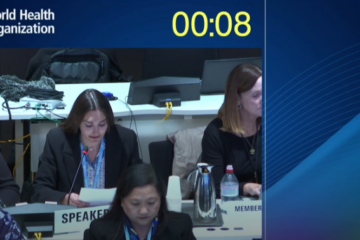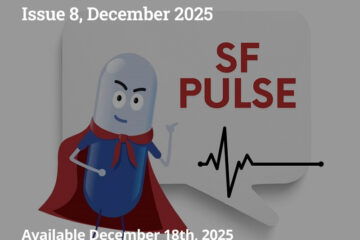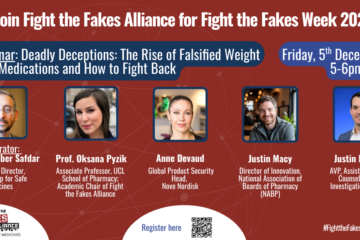Update: Dr. Thomas Egwang has launched a campaign, EquipmentAgainstFakes, to help raise funds for his lab’s purchasing of equipment for detecting fake medicines. Click here to see what you can do to help!
My name is Dr. Thomas Egwang, and I am the Senior Scientist at Med Biotech Laboratories in Uganda.
I have been on a combination of two anti-hypertensive drugs for the past ten years. These drugs have their own side effects. I have lost two relatives who died from complications arising from multiple strokes while on medication. My feeling at the time of their deaths was that they probably did not take their drugs as faithfully as they should have. Now, I think that they were probably not taking the right medications. But I have no proof.
With my increasing awareness about the danger of fake medicines, which are everywhere, I worry now about the quality and safety of blood pressure medicines that I take daily. I take my blood pressure readings now on a weekly basis to avoid any surprises, because dangerously high blood pressure can creep up on you without you being aware.
But my worst fears are about our two little girls whenever they have malaria. Although they are older than five years and should be out of danger of severe malaria, I fret whenever they are taking Coartem. Thirty percent of antimalarials in Uganda are fake!
There is no class of medicine which is safe for the family, from blood pressure medicines, pain killers like Panadol we use to treat fever to flu medicines, contraceptives, cough syrup, etc.
When you go to the pharmacy, the dispenser gives you the option of choosing a drug from Cyprus, UK, Germany, India, or China. Drugs from Europe cost twice as much as those from Asia. We often choose the more expensive European drugs—but this might be no safeguard at all. Counterfeiters are probably already on to the open secret that the African middle class go for European drugs, and imitate these medicines just as they would any others. But the urban or rural poor have fewer choices, and buy the cheapest drugs for their families, sometimes off the street rather than in a pharmacy.
I have operated the Med Biotech for the past 18 years. Our research is focussed on malaria vaccines studies in collaboration with Professor Toshihiro Horii of Osaka University and Dr. Hastings Ozwara at the Institute of Primate Research in Kenya. The latter collaboration focuses on innovations of vaccine or drug delivery during pregnancy in a non-human primate model. Our research has played a key role in bringing a key malaria blood stage vaccine candidate into human clinical trials in Northern Uganda.
Rather than just continue worrying about the safety of medicines, I am planning to add analytical chemistry capacity to the lab to be able to identify fake medicines and what they contain. This will involve testing random drug samples from remote communities outside the reach of National Drug Authority (NDA) and submitting test results to NDA for action.We will complement any existing mobile phone-based drug validation system.
This will be our way of contributing to the Fight the Fakes campaign.


